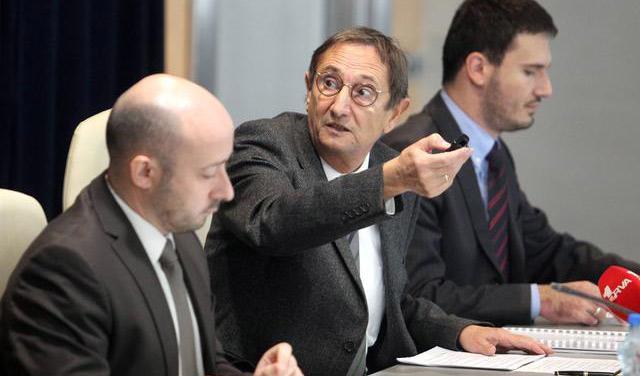
The Fiscal Council criticizes the Fiscal Strategy
The 2019 Fiscal Strategy does not recognize low economic growth as Serbia’s biggest macroeconomic problem, which is why no fiscal policy change is planned to accelerate growth, the Fiscal Council has stated.
The Council notes that in the Fiscal Strategy of the Government of Serbia for 2019 with projections for 2020 and 2021, „most of the economic and fiscal challenges that the Government should respond to by 2021 are not well addressed in the Strategy, and some major problems are not even mentioned in it.“
It is estimated that Serbia is systematically lagging behind the comparable Central and Eastern European countries (CEE) in the rate of economic growth, because from 2010 to 2018, the cumulative growth of Serbia’s economy was about 15 percent, while the CEE countries had two times faster growth on average.
„In order for the Serbian economy to have a high and sustainable economic growth of at least one percentage point more than the average of the CEE countries, which would enable it to start to surpass them in terms of development, the share of investments in gross domestic product (GDP) should be around 25% and it is now 18.5 percent,“ the Council said.
The Strategy does not recognize the problem of the poor state of the basic infrastructure of Serbia: roads, railways and environmental protection, the Council says, adding that a strong increase in public investments is not necessary only because of the acceleration of economic growth, but also because of the very poor state of the infrastructure.
The Fiscal Council notes that Serbia is among the most polluted European countries due to long-term low environmental investments. The strategy does not recognize the problem of poor quality of services provided by the state in important areas such as health care and education, as well as Tax Administration.
„The government does not have a concrete plan when it will switch to a sustainable model of managing the number of employees in the state and finally abolish the harmful ban on employment.“ The strategy, according to the Fiscal Council, does not identify the disorder of public finances at the local government level.
The strategy does not deal satisfactorily with the unsuccessful business operation of public and yet to be privatized state-owned enterprises. Privatization of RTB Bor and PKB led to, as it is said, a significant progress, and the biggest remaining problems are Resavica, Petrohemija and MSK, as well as Ikarbus, Lasta, Simpo, Jumko, Tigar, Trayal.
As the most important positive side of the Strategy, the Council underlines the fact that the low fiscal deficit of 0.5 percent of GDP, which is planned in the 2019 budget, is permanently retained in the coming years. „According to the forecasts in the Strategy, public debt should drop below 50 percent of GDP in 2020, which is a realistic projection and a good result.“
Izvor: Beta
Foto: Beta







